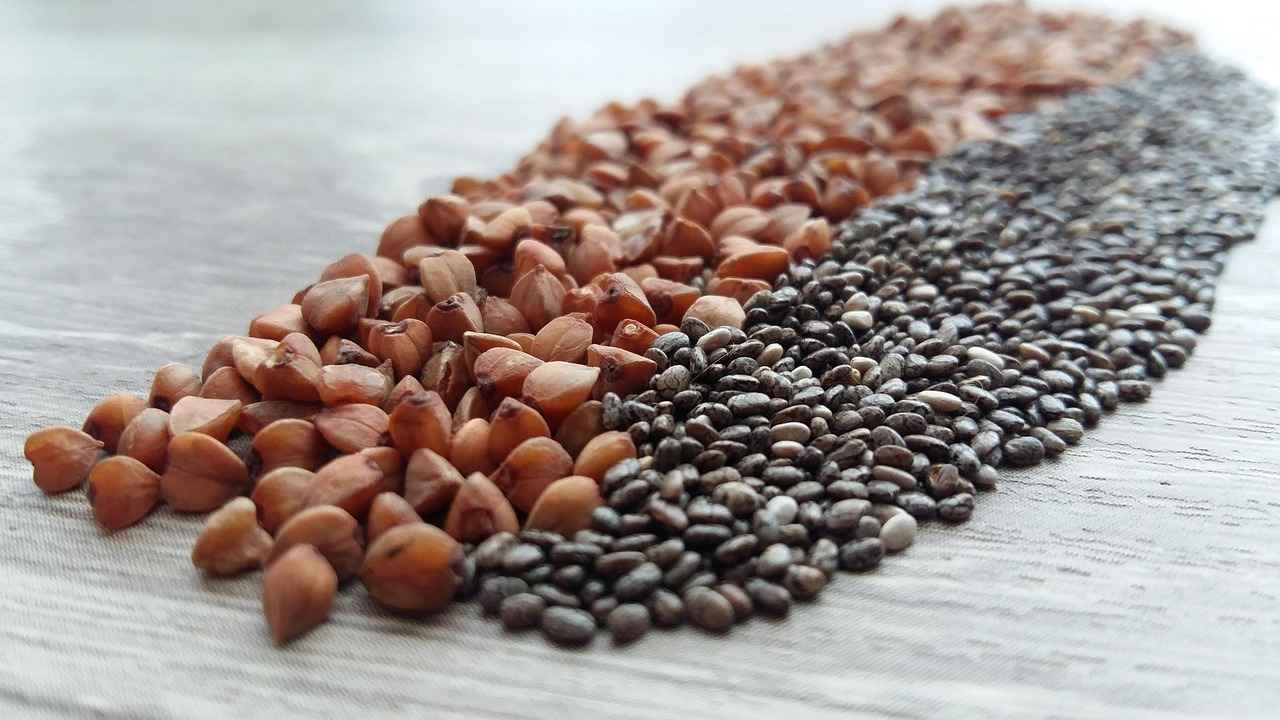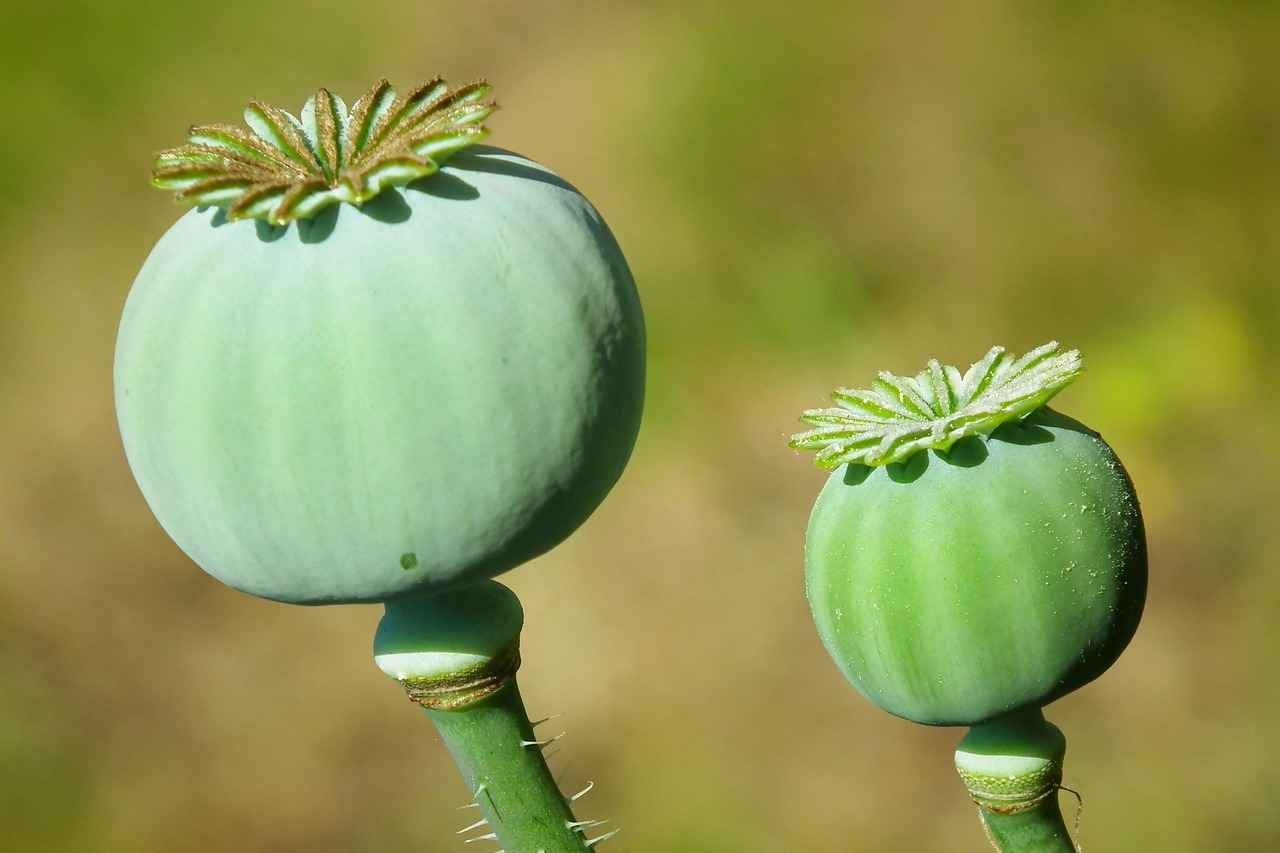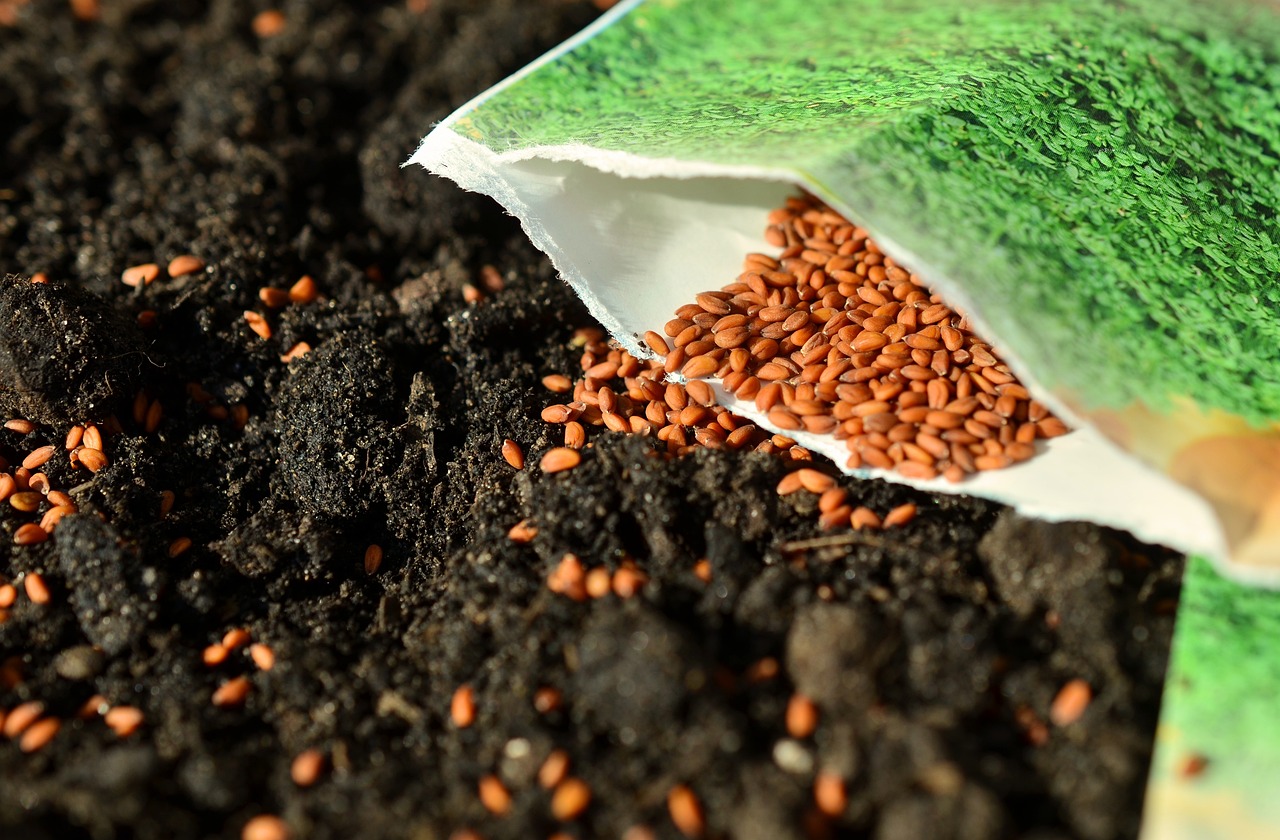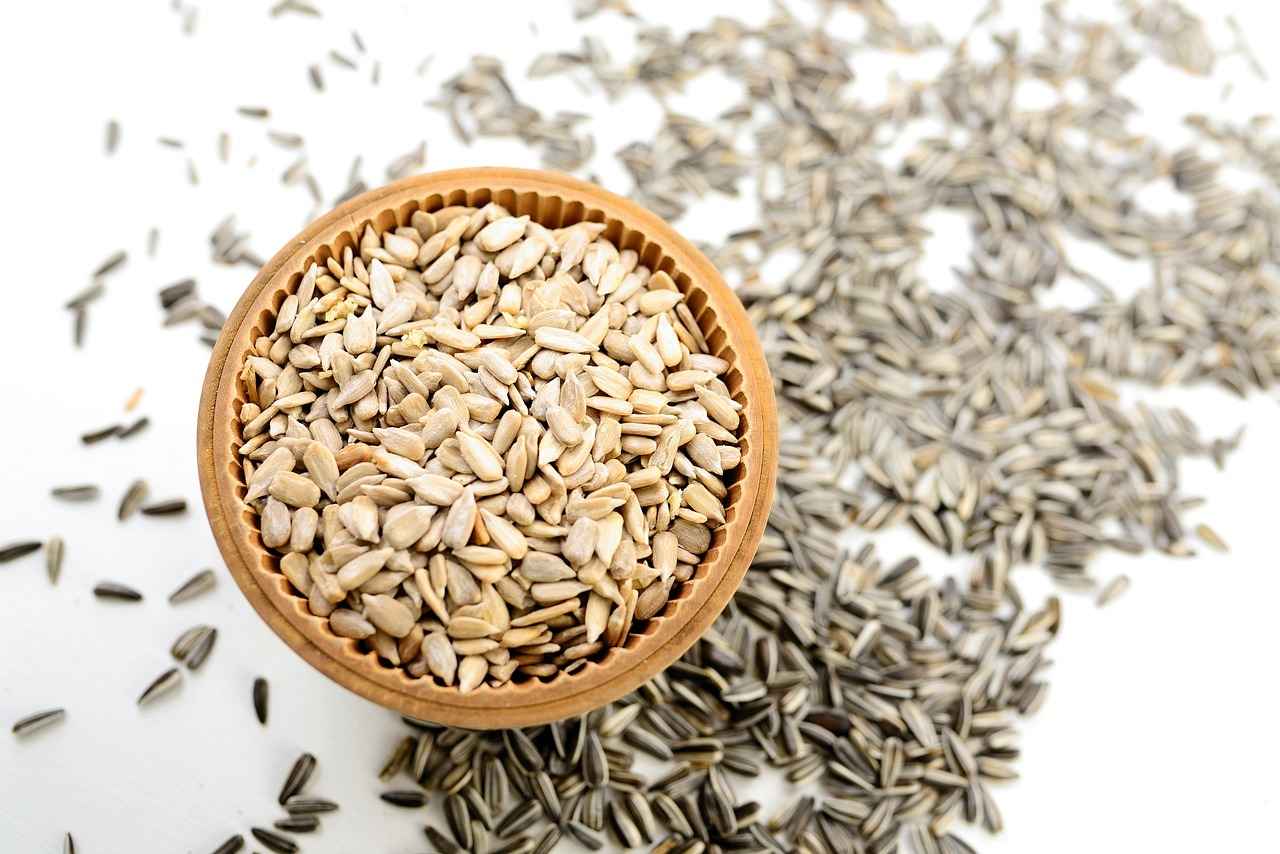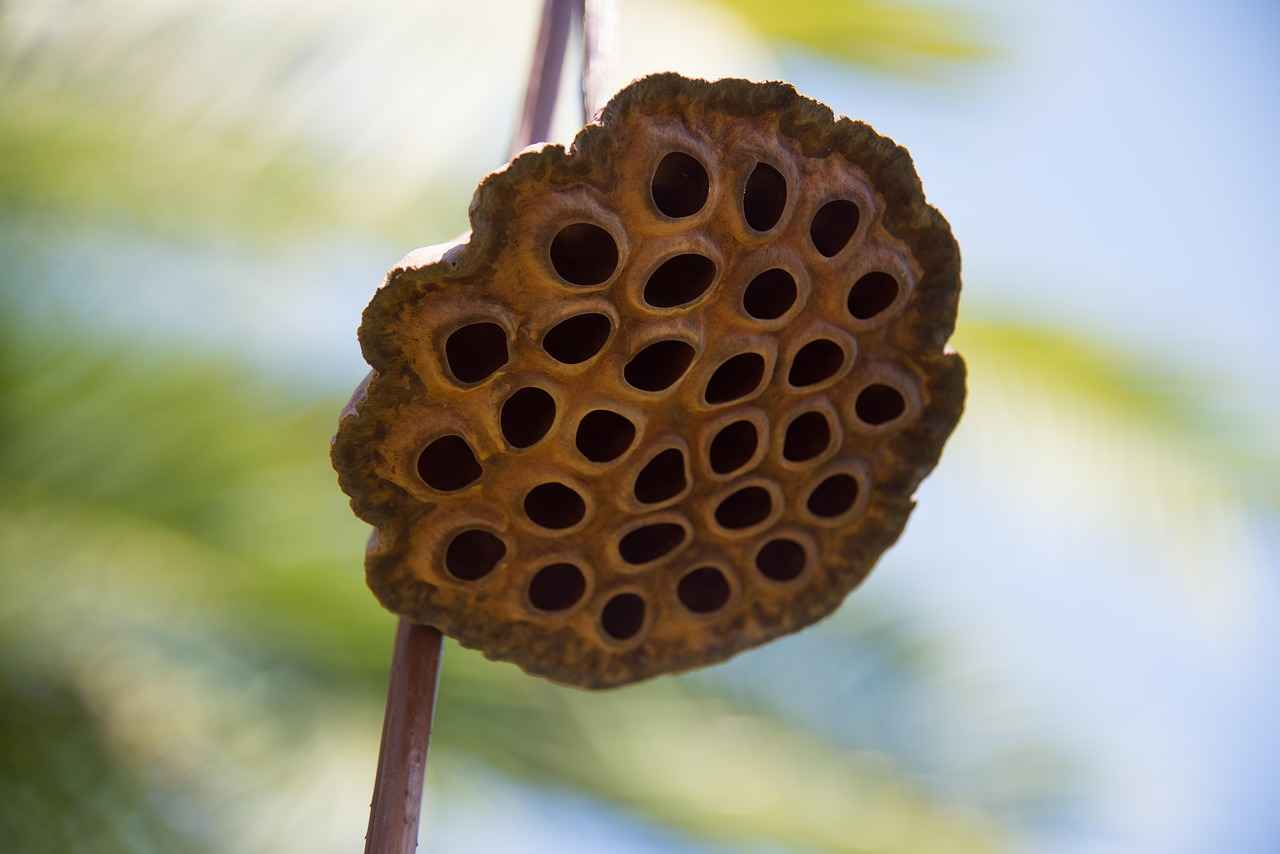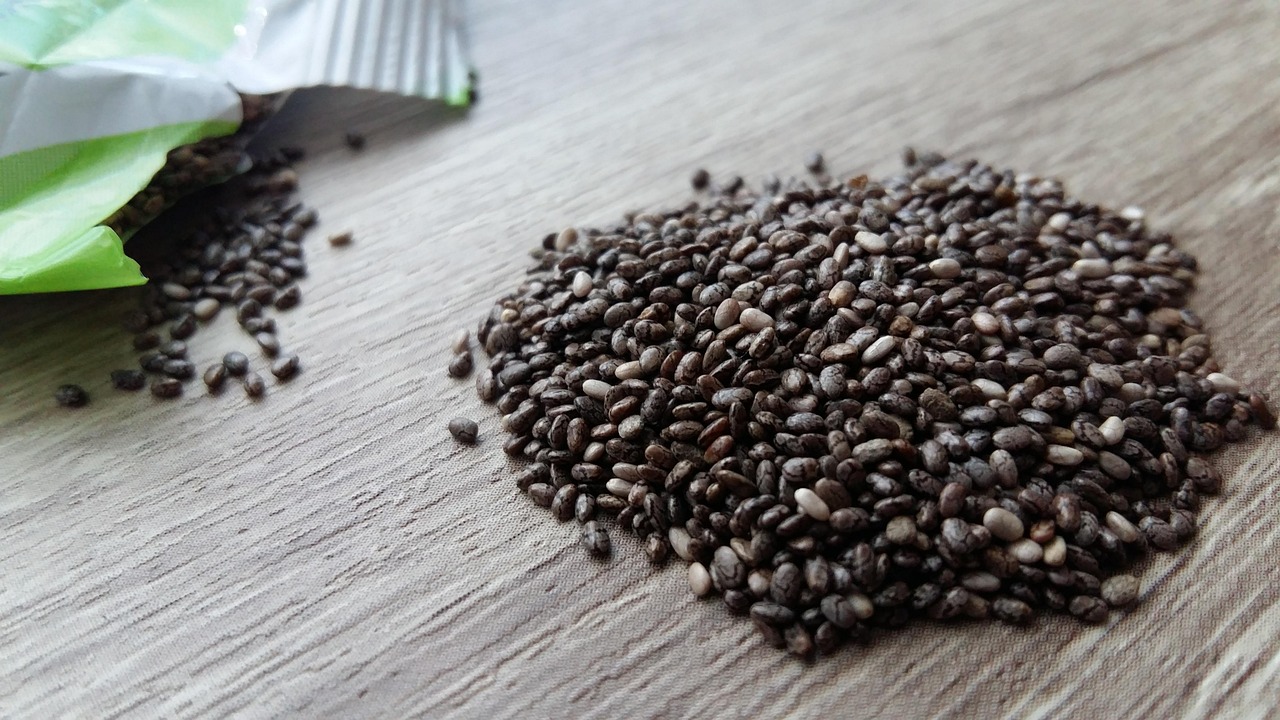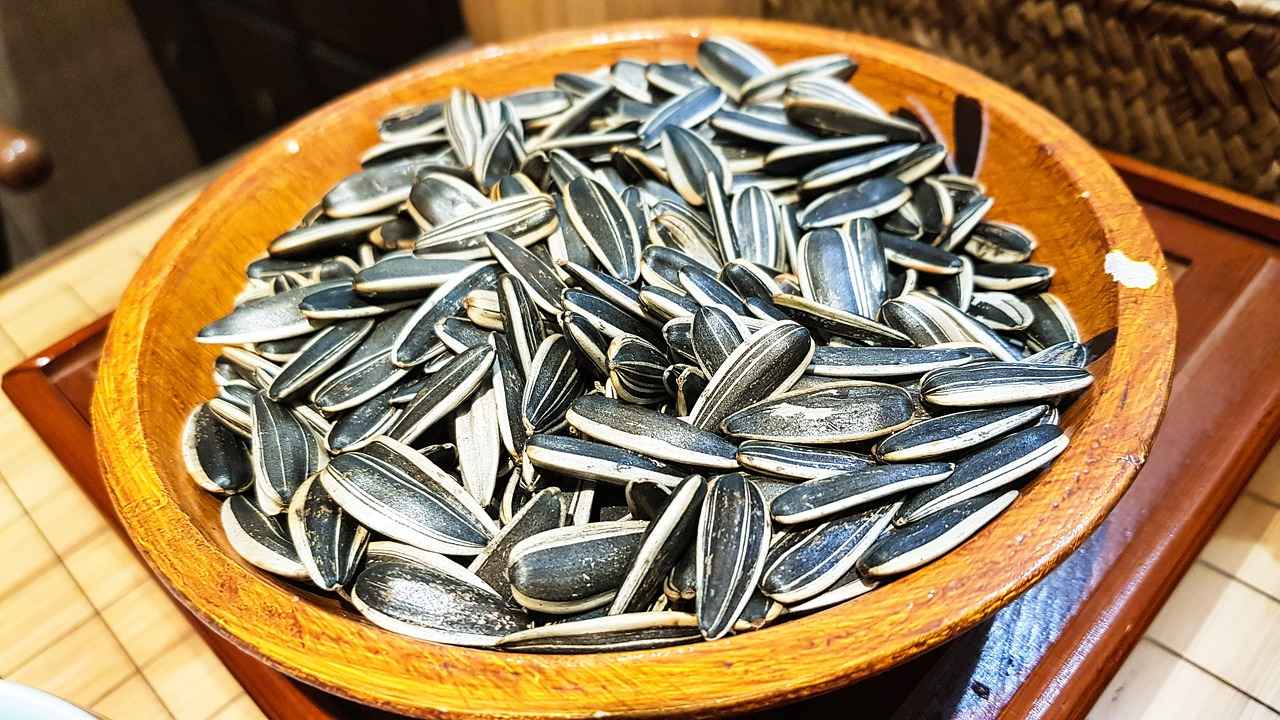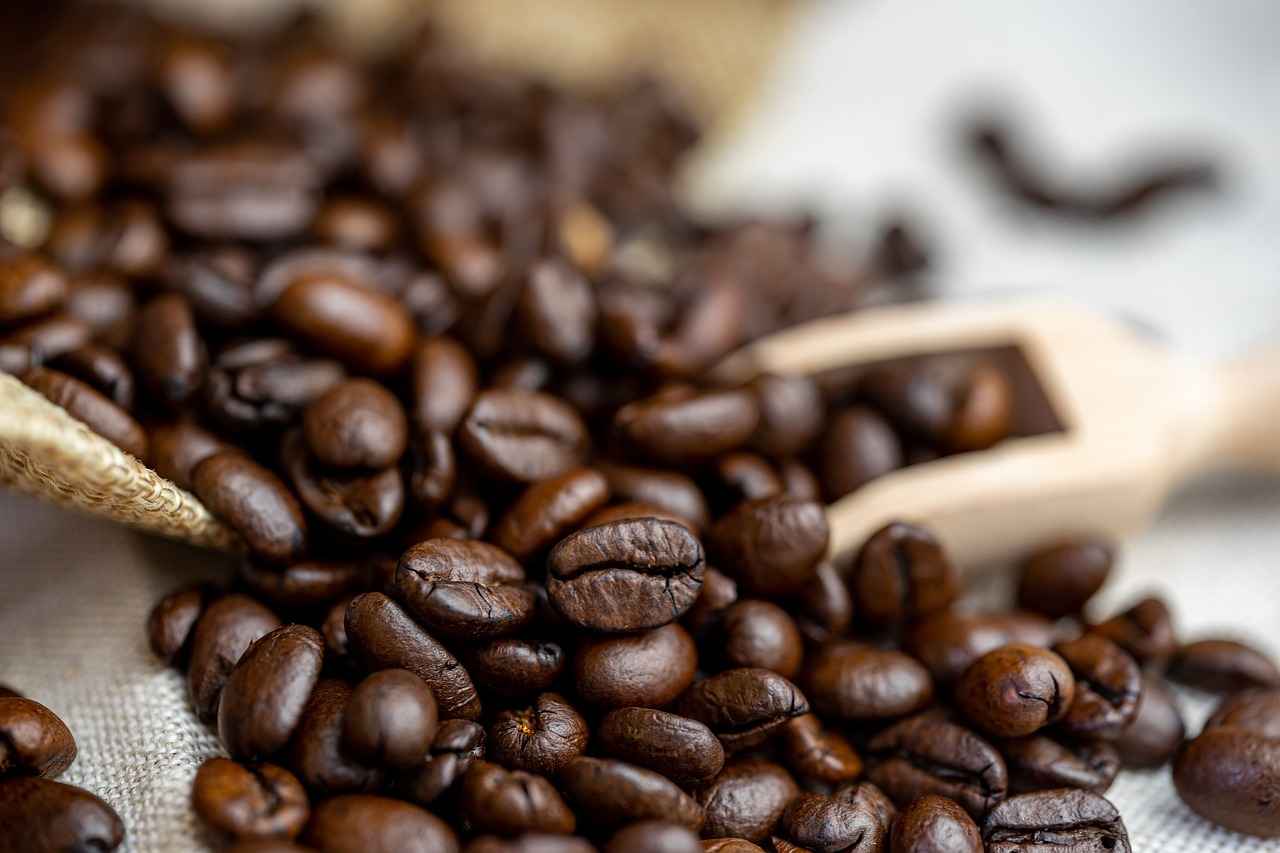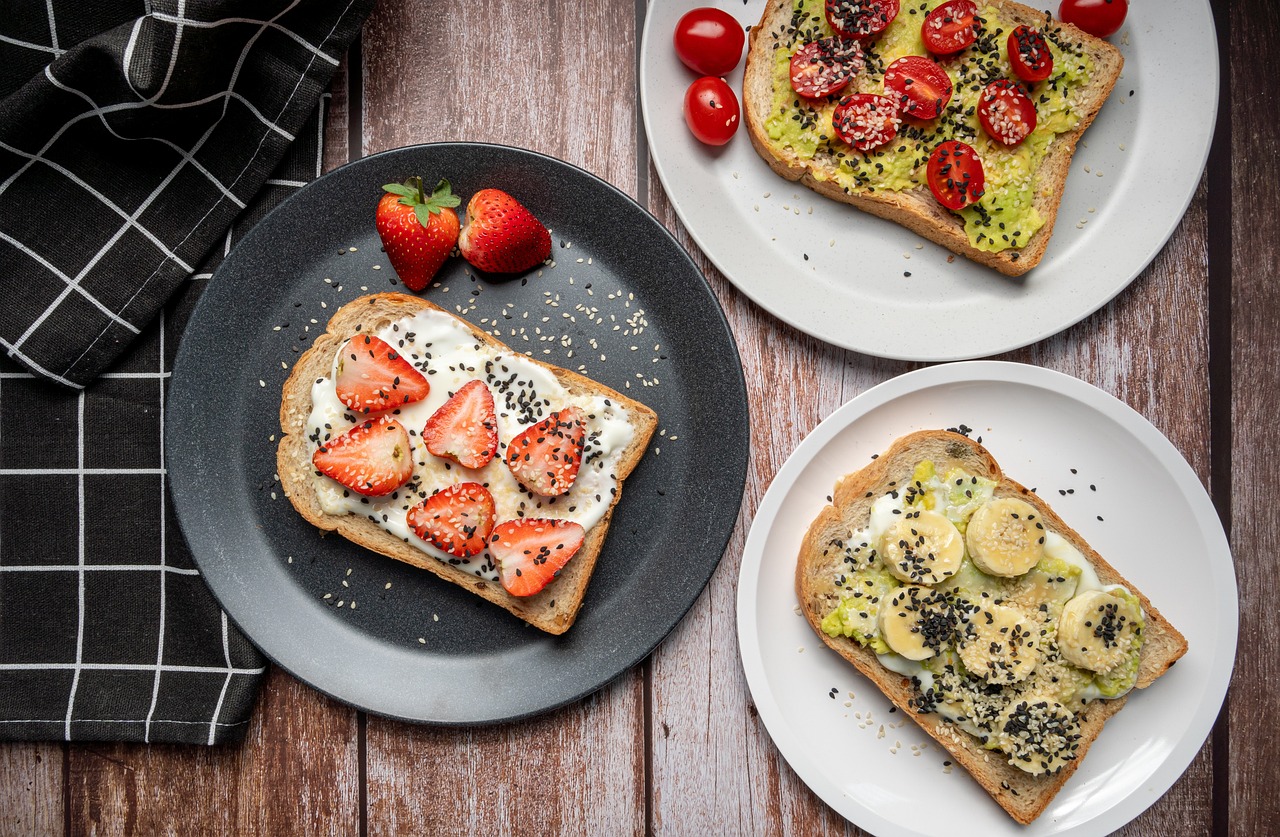Chia seeds have surged in popularity as a nutritious plant-based protein source. These tiny seeds, known for their impressive health benefits, are making their way into various diets around the world. This article delves into their numerous advantages, detailed nutritional profile, and practical methods to seamlessly integrate them into your daily meals.
Chia seeds, originating from the Salvia hispanica plant, are small, black seeds that have been used for centuries by ancient civilizations. They are celebrated not only for their nutritional density but also for their versatility in culinary applications. Rich in antioxidants, fiber, and essential fatty acids, chia seeds are a powerhouse of nutrition.
Chia seeds are often referred to as a superfood due to their remarkable nutrient profile. They are packed with:
- Omega-3 fatty acids, which promote heart health
- Fiber, aiding in digestion and promoting satiety
- Protein, providing a plant-based source of this essential nutrient
These components contribute to a range of health benefits, making chia seeds a favored choice among health-conscious individuals.
Chia seeds offer an impressive amount of protein for a plant-based food, providing approximately 4 grams of protein per 2-tablespoon serving. This makes them an excellent addition to vegetarian and vegan diets, helping individuals meet their protein needs without animal products.
The health benefits of chia seeds are extensive, including:
- Improved digestive health due to their high fiber content
- Enhanced heart health from omega-3 fatty acids
- Better blood sugar control, which may help in managing diabetes
These benefits support overall wellness and vitality, making chia seeds a valuable addition to any diet.
Incorporating chia seeds into your meals is easy and versatile. Here are some practical ideas:
- Add them to smoothies for a nutrient boost
- Use them in baked goods like muffins and bread
- Prepare chia pudding by soaking them in milk or a milk alternative
Chia seeds can be used in a variety of delicious recipes:
1. Chia Pudding: Mix chia seeds with almond milk, sweeten with honey, and let it sit overnight.2. Smoothie Booster: Blend chia seeds into your favorite smoothie for added texture and nutrition.3. Energy Bars: Combine chia seeds with oats, nut butter, and dried fruits for a quick snack.
Yes, chia seeds can serve as a vegan egg substitute. When mixed with water, they form a gel-like consistency that mimics the binding properties of eggs. To replace one egg, simply mix 1 tablespoon of chia seeds with 2.5 tablespoons of water and let it sit for about 15 minutes.
While chia seeds are generally safe for most people, consuming them in large quantities may lead to digestive issues such as bloating or discomfort. It’s advisable to start with small amounts and gradually increase your intake.
When selecting chia seeds, consider the following:
- Look for organic certification to ensure quality
- Check for freshness, as stale seeds can lose their nutritional value
- Choose seeds that are dark in color, indicating higher nutrient content
By choosing high-quality chia seeds, you can maximize the health benefits and flavor in your dishes.

What Are Chia Seeds?
Chia seeds are tiny black seeds that come from the Salvia hispanica plant, which is native to Central America. These seeds have been a staple in the diets of ancient civilizations, including the Aztecs and Mayans, who valued them for their nutritional and medicinal properties. Today, chia seeds are celebrated for their impressive health benefits and versatility in various culinary applications.
Chia seeds are not only rich in macronutrients but also packed with essential vitamins and minerals. Just a small serving of these seeds can provide a wealth of nutrition. They are a fantastic source of omega-3 fatty acids, which are crucial for heart health, and they contain significant amounts of fiber, protein, and various micronutrients such as calcium, magnesium, and phosphorus.
Chia seeds have earned the title of a superfood due to their extraordinary nutrient profile. They are high in antioxidants, which help combat oxidative stress in the body. Additionally, the combination of omega-3 fatty acids and fiber contributes to improved heart health and digestive function. This nutrient density makes chia seeds an excellent choice for those seeking to enhance their overall wellness.
In terms of protein content, chia seeds offer approximately 4 grams of protein per 2-tablespoon serving. This makes them an excellent plant-based protein source, particularly for vegetarians and vegans. The protein in chia seeds is also complete, meaning it contains all nine essential amino acids, making it a valuable addition to any diet.
The health benefits of chia seeds are vast and varied. Regular consumption can lead to improved digestive health, thanks to their high fiber content, which promotes regular bowel movements and a healthy gut microbiome. Furthermore, the omega-3 fatty acids found in chia seeds can help lower cholesterol levels and reduce inflammation, contributing to better cardiovascular health.
Yes, chia seeds are excellent for digestive health. The soluble fiber in chia seeds absorbs water and expands in the stomach, creating a gel-like substance that aids in digestion and helps maintain a feeling of fullness. This property can assist in regulating appetite and preventing overeating.
Incorporating chia seeds into your diet can indeed assist with weight management. Their ability to swell and absorb liquid can help you feel satiated longer, which may lead to reduced caloric intake over time. Including chia seeds in meals or snacks can be a strategic approach to curbing hunger and maintaining a healthy weight.
There are numerous ways to incorporate chia seeds into your meals. They can be easily added to smoothies, oatmeal, yogurt, or salads. Additionally, chia seeds can be used in baking, providing a nutritious boost to muffins, breads, and energy bars. Their mild flavor allows them to blend seamlessly into both sweet and savory dishes.
- Chia Pudding: Combine chia seeds with your choice of milk and sweetener, let it sit overnight, and enjoy a nutritious breakfast.
- Chia Smoothie: Blend chia seeds with fruits, spinach, and your favorite liquid for a nutrient-packed drink.
- Chia Energy Bars: Mix chia seeds with oats, nuts, and honey, then bake for a healthy snack.
Absolutely! Chia seeds can be used as a vegan egg substitute in recipes. To do this, mix 1 tablespoon of chia seeds with 2.5 tablespoons of water and let it sit for about 15 minutes until it forms a gel-like consistency. This mixture can replace one egg in baking recipes.
While chia seeds are generally safe for most people, they can cause digestive discomfort in some individuals, especially if consumed in large quantities. It is advisable to start with small amounts and gradually increase your intake to allow your body to adjust.
When selecting chia seeds, look for organic certification and check for freshness. The seeds should be dark in color and free from any rancid smell. High-quality chia seeds not only provide maximum nutritional benefits but also enhance the flavor of your dishes.
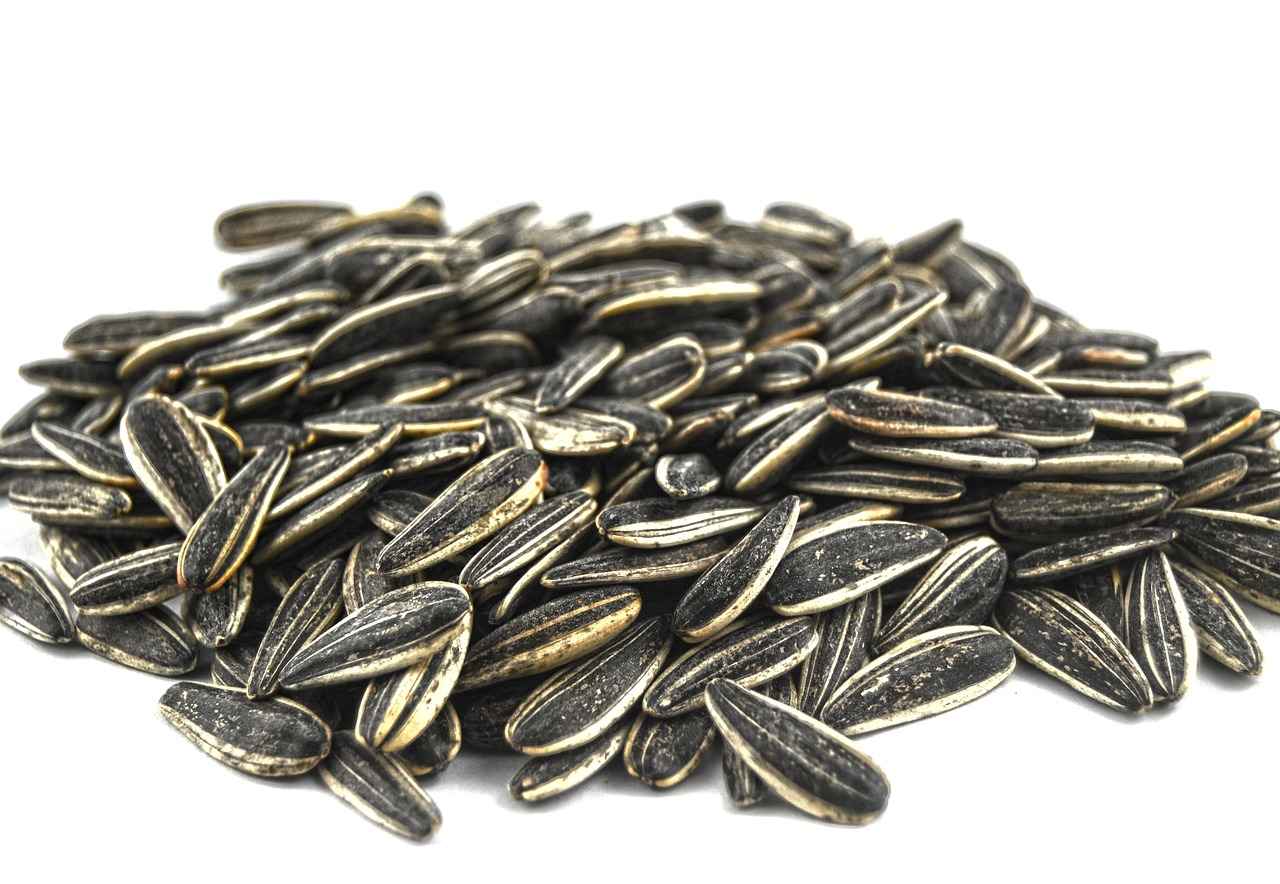
Why Are Chia Seeds Considered a Superfood?
Chia seeds have garnered attention in recent years as a nutrient-dense superfood, celebrated for their remarkable health benefits. These tiny seeds, native to Mexico and Guatemala, are not only versatile in cooking but also packed with essential nutrients that contribute to overall wellness. Their growing popularity is attributed to their impressive nutritional profile, which includes high levels of omega-3 fatty acids, fiber, and protein.
Chia seeds are a powerhouse of nutrition. A single ounce (about 28 grams) contains:
- 5 grams of protein
- 11 grams of fiber
- Omega-3 fatty acids (over 5 grams)
- Various vitamins and minerals, including calcium, magnesium, and phosphorus
This unique combination of nutrients supports various bodily functions, making chia seeds a valuable addition to any diet.
The omega-3 fatty acids found in chia seeds, particularly alpha-linolenic acid (ALA), are essential for heart health. They help reduce inflammation, lower blood pressure, and improve cholesterol levels. Regular consumption of omega-3s is linked to a decreased risk of heart disease, making chia seeds an excellent choice for those looking to enhance their cardiovascular health.
Chia seeds are an excellent source of dietary fiber, which plays a crucial role in maintaining digestive health. The fiber in chia seeds absorbs water, forming a gel-like substance that helps regulate bowel movements and prevent constipation. Moreover, this high fiber content promotes a feeling of fullness, which can aid in weight management by reducing overall caloric intake.
Incorporating chia seeds into your diet may assist in weight management. Their ability to absorb liquid and expand in the stomach can help you feel fuller for longer periods, potentially curbing cravings and reducing snacking between meals. This satiety factor makes chia seeds a smart addition to meals and snacks, especially for those looking to maintain or lose weight.
Beyond heart health and digestion, chia seeds offer several additional health benefits:
- Bone Health: With high levels of calcium, phosphorus, and magnesium, chia seeds contribute to strong bones.
- Blood Sugar Control: The fiber content helps slow down the absorption of sugar, aiding in blood sugar regulation.
- Antioxidant Properties: Chia seeds are rich in antioxidants, which help combat oxidative stress and inflammation in the body.
Adding chia seeds to your diet is simple and versatile. Here are a few practical ideas:
- Add them to smoothies for a nutritional boost.
- Sprinkle them on yogurt or oatmeal.
- Use them in baking, such as in muffins or bread.
- Make chia pudding by soaking the seeds in milk or a dairy-free alternative.
These methods not only enhance the nutritional value of your meals but also add a delightful texture.
While chia seeds are generally safe for most people, it’s essential to consume them in moderation. Overconsumption can lead to digestive discomfort, especially if not adequately hydrated. Starting with small amounts and gradually increasing your intake can help your body adjust.
In conclusion, chia seeds are a highly nutritious superfood that offers numerous health benefits. Their rich profile of omega-3 fatty acids, fiber, and protein makes them a valuable addition to any diet, supporting heart health, digestion, and weight management. With their versatility in cooking, incorporating chia seeds into your meals can be both easy and delicious.
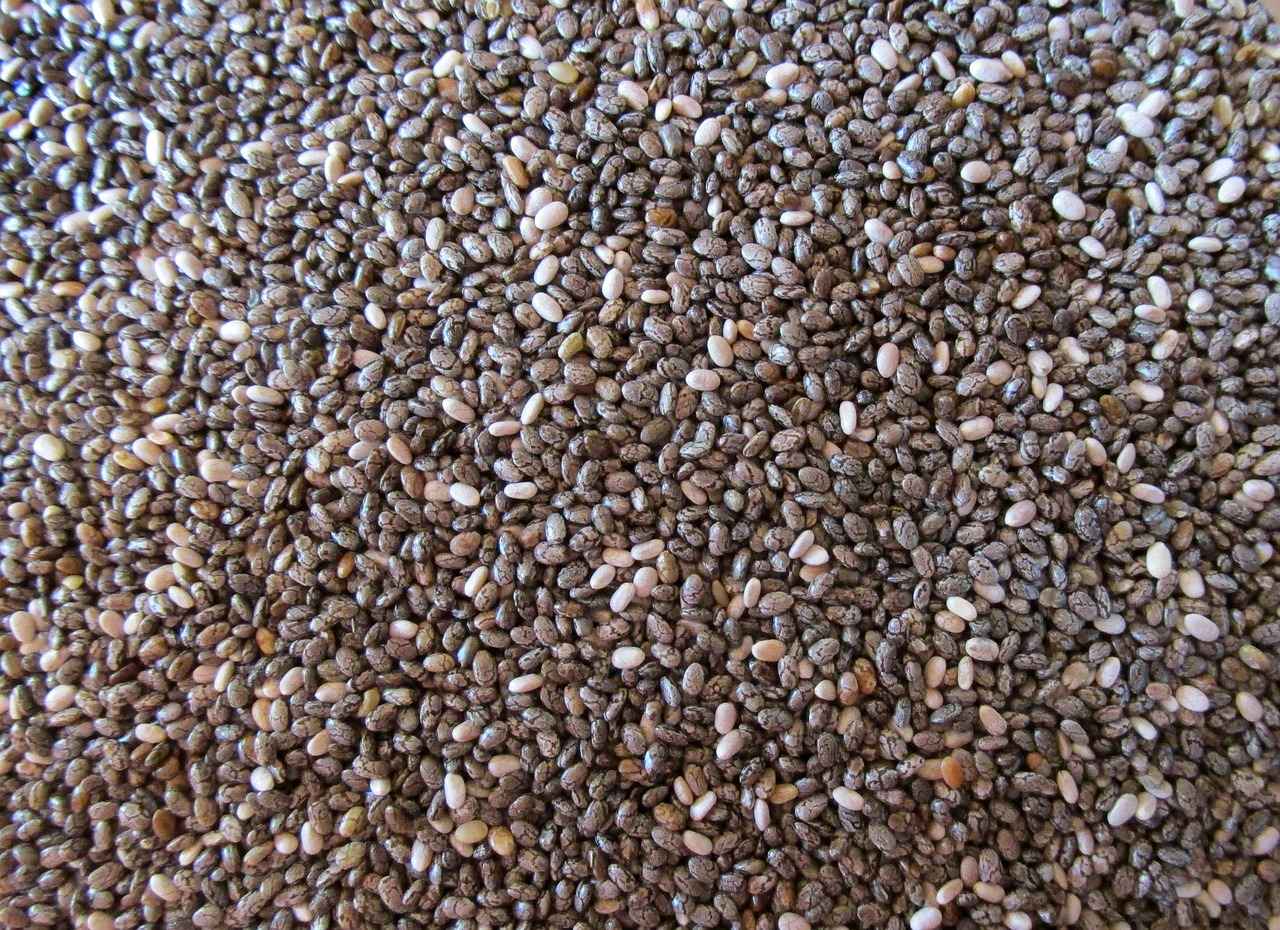
How Much Protein Do Chia Seeds Contain?
Chia seeds have emerged as a popular choice for those seeking a nutritious and plant-based protein source. With their rich nutritional profile and numerous health benefits, they are becoming a staple in many diets, especially for vegetarians and vegans. In this section, we will delve deeper into the protein content of chia seeds and why they are considered a vital addition to a balanced diet.
Chia seeds offer approximately 4 grams of protein per 2-tablespoon serving, making them a remarkable source of protein for those following a plant-based diet. This amount is significant when compared to other seeds and nuts, positioning chia seeds as a nutritional powerhouse.
Protein plays a crucial role in the body, serving as a building block for muscles, bones, skin, and hormones. It is essential for repairing tissues and maintaining overall health. For individuals on vegetarian or vegan diets, finding adequate protein sources can be challenging, making chia seeds an ideal option.
| Food Source | Protein per 100g |
|---|---|
| Chia Seeds | 17g |
| Almonds | 21g |
| Quinoa | 14g |
| Tofu | 8g |
As illustrated in the table, chia seeds provide a competitive amount of protein compared to other popular plant-based protein sources. Additionally, they are rich in essential amino acids, which are vital for various bodily functions.
For adults, the recommended dietary allowance (RDA) for protein is around 46 grams for women and 56 grams for men. Incorporating chia seeds into your diet can help meet these requirements, especially when combined with other protein sources. For example, adding chia seeds to smoothies, oatmeal, or baked goods can enhance the protein content of your meals significantly.
Beyond their protein content, chia seeds are also packed with other essential nutrients. They are an excellent source of:
- Omega-3 fatty acids: Beneficial for heart health.
- Fiber: Aids in digestion and promotes satiety.
- Antioxidants: Help combat oxidative stress in the body.
This combination of nutrients makes chia seeds not just a protein source but a well-rounded addition to any diet.
Incorporating chia seeds into your meals can be both easy and delicious. Here are some practical ways to enjoy chia seeds:
- Add them to smoothies for an extra protein boost.
- Mix them into yogurt or oatmeal for added texture and nutrition.
- Use chia seeds as a thickener in soups and sauces.
- Prepare chia pudding by soaking them in almond milk or coconut milk.
By experimenting with these methods, you can enjoy the benefits of chia seeds while enhancing your overall dietary protein intake.
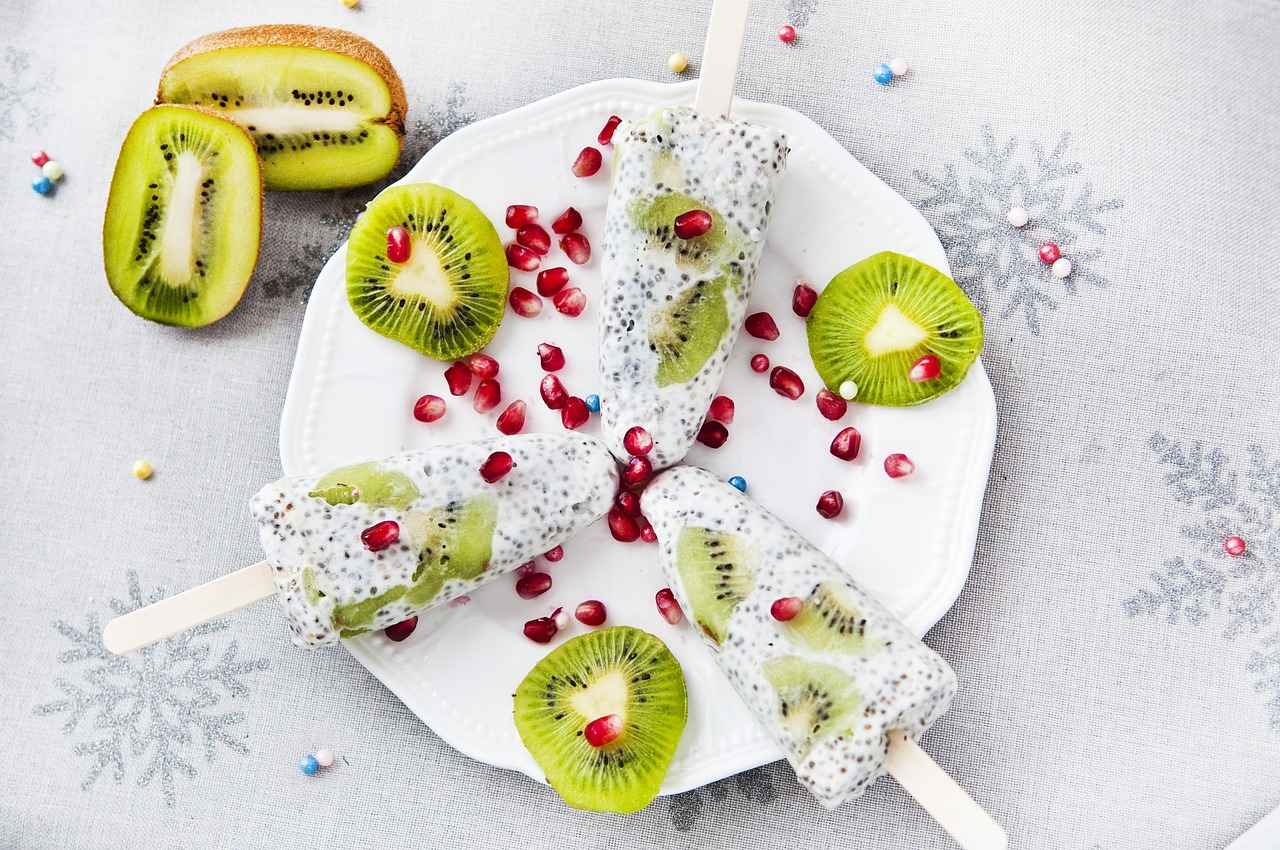
What Are the Health Benefits of Chia Seeds?
Chia seeds have become increasingly popular in health and wellness circles, and for good reason. These tiny seeds, packed with nutrients, offer a multitude of health benefits that can significantly enhance your overall well-being. In this section, we will delve into the various ways chia seeds can positively impact your health.
One of the most significant benefits of chia seeds is their ability to improve digestive health. With a high fiber content, chia seeds help promote regular bowel movements and prevent constipation. When consumed, these seeds absorb water and swell, creating a gel-like substance that aids in digestion. This property not only helps maintain a healthy digestive tract but also contributes to a feeling of fullness, making chia seeds an excellent addition to weight management strategies.
Chia seeds are rich in omega-3 fatty acids, which are essential for heart health. These healthy fats can help reduce inflammation, lower blood pressure, and decrease cholesterol levels. By incorporating chia seeds into your diet, you can support cardiovascular function and reduce the risk of heart disease. Regular consumption of these seeds may also improve overall heart health by promoting better circulation and reducing triglyceride levels.
For those concerned about blood sugar control, chia seeds can be a valuable dietary addition. Their high fiber content slows down the absorption of sugar in the bloodstream, preventing spikes and crashes in blood sugar levels. This makes chia seeds an excellent choice for individuals with diabetes or those looking to maintain stable energy levels throughout the day.
Chia seeds are also a great source of essential minerals like calcium, magnesium, and phosphorus, all of which are vital for bone health. Regular consumption of chia seeds can help strengthen bones and reduce the risk of osteoporosis. Just two tablespoons of chia seeds provide a significant portion of your daily calcium needs, making them an excellent choice for those seeking to improve their bone density.
Incorporating chia seeds into your meals can assist in weight management. Due to their ability to absorb liquid and expand in your stomach, they can help you feel fuller for longer periods. This can lead to reduced calorie intake and support weight loss efforts. Adding chia seeds to smoothies, yogurt, or salads can be an effective way to enhance satiety and control hunger.
Chia seeds are also rich in antioxidants, which help combat oxidative stress in the body. These antioxidants protect your cells from damage caused by free radicals, potentially reducing the risk of chronic diseases such as cancer and heart disease. Including chia seeds in your diet can provide an extra layer of protection for your body, promoting long-term health.
Adding chia seeds to your diet is easy and versatile. They can be sprinkled on salads, blended into smoothies, or used as an ingredient in baking. Chia pudding, made by soaking the seeds in liquid, is a popular and nutritious snack. Experimenting with different recipes can help you discover new ways to enjoy these tiny powerhouses.
In summary, chia seeds offer a wide range of health benefits, including improved digestive health, enhanced heart health, better blood sugar control, and support for bone health. Their rich nutrient profile makes them a valuable addition to any diet, promoting overall wellness and vitality.
Are Chia Seeds Good for Digestive Health?
Chia seeds, often hailed as a superfood, are not only rich in nutrients but also offer significant benefits for digestive health. Their unique properties make them an excellent addition to a balanced diet. This article delves deeper into how chia seeds promote healthy digestion and their overall impact on gastrointestinal wellness.
One of the standout features of chia seeds is their high fiber content. Each 28-gram serving contains approximately 10 grams of dietary fiber, which is essential for maintaining digestive health. Fiber plays a critical role in regulating bowel movements and preventing constipation. When consumed, chia seeds absorb water and expand in the stomach, creating a gel-like substance that aids in digestion.
- Water Absorption: Chia seeds can absorb up to 12 times their weight in water. This property helps to keep the digestive tract hydrated, facilitating smoother bowel movements.
- Increased Satiety: The expansion of chia seeds in the stomach promotes a feeling of fullness, which can help prevent overeating and support weight management.
- Regular Bowel Movements: The gel-like consistency formed when chia seeds are mixed with water helps to bulk up stool, making it easier to pass and reducing the risk of constipation.
Beyond promoting regularity, chia seeds also contribute to a healthy gut microbiome. Their high fiber content acts as a prebiotic, providing nourishment for beneficial gut bacteria. A balanced gut microbiome is crucial for optimal digestion and overall health.
Integrating chia seeds into your daily routine can be simple and enjoyable. Here are a few practical ways to do so:
- Chia Pudding: Combine chia seeds with your choice of milk and a sweetener, then let it sit overnight to create a delicious pudding.
- Smoothies: Add a tablespoon of chia seeds to your morning smoothie for an extra fiber boost.
- Baking: Incorporate chia seeds into baked goods like muffins or bread for added texture and nutrition.
While chia seeds are generally safe for most individuals, it’s important to consume them in moderation. Starting with small amounts is advisable, especially for those who are new to high-fiber foods. Additionally, ensure adequate hydration when consuming chia seeds to avoid digestive discomfort.
In summary, chia seeds are a remarkable addition to any diet, particularly for those seeking to enhance their digestive health. Their high fiber content, ability to absorb water, and prebiotic properties make them a powerful ally in promoting regular bowel movements and overall gastrointestinal wellness. By incorporating chia seeds into your meals, you can enjoy not only their nutritional benefits but also their positive impact on your digestive system.
Can Chia Seeds Help with Weight Management?
Chia seeds, a tiny yet powerful superfood, have gained significant attention for their potential role in weight management. These seeds, packed with essential nutrients, offer a unique way to help individuals achieve their health and fitness goals. By understanding how chia seeds can aid in weight management, you can make informed choices about incorporating them into your diet.
One of the most notable features of chia seeds is their remarkable ability to absorb liquid. When soaked in water, chia seeds can expand up to 10-12 times their original size. This property can significantly enhance feelings of fullness and satiety. Consuming chia seeds before meals may help reduce hunger pangs, leading to a lower overall caloric intake.
- High Fiber Content: Chia seeds are rich in dietary fiber, with about 11 grams per ounce. This high fiber content helps regulate digestion and promotes a feeling of fullness, which can prevent overeating.
- Omega-3 Fatty Acids: These healthy fats not only support heart health but also play a role in reducing inflammation and improving metabolic health, which can be beneficial for weight management.
- Protein: Chia seeds contain a good amount of plant-based protein, which is essential for muscle maintenance and can help curb hunger.
Incorporating chia seeds into your diet is simple and versatile. Here are some practical suggestions:
- Add chia seeds to your morning smoothies for a nutrient boost.
- Mix them into yogurt or oatmeal for added texture and nutrition.
- Use chia seeds as an ingredient in baking, such as in muffins or energy bars.
- Prepare chia pudding by soaking the seeds in almond milk or coconut milk overnight for a delicious and filling breakfast or snack.
To maximize the benefits of chia seeds, consider the following tips:
- Start Small: If you are new to chia seeds, begin with a small amount, such as one tablespoon, and gradually increase your intake.
- Stay Hydrated: Since chia seeds absorb a lot of liquid, it’s crucial to drink plenty of water throughout the day to aid digestion.
- Combine with Other Foods: Pair chia seeds with other nutrient-dense foods to create balanced meals that support weight management.
While chia seeds are generally safe for most people, consuming them in excessive amounts can lead to digestive discomfort, including bloating or gas. It’s essential to listen to your body and adjust your intake accordingly. Additionally, those with specific dietary restrictions or health conditions should consult a healthcare professional before making significant changes to their diet.
In summary, chia seeds can be a valuable addition to your weight management strategy. Their unique properties, combined with their nutritional benefits, make them an excellent choice for those looking to enhance their diet and achieve their health goals.
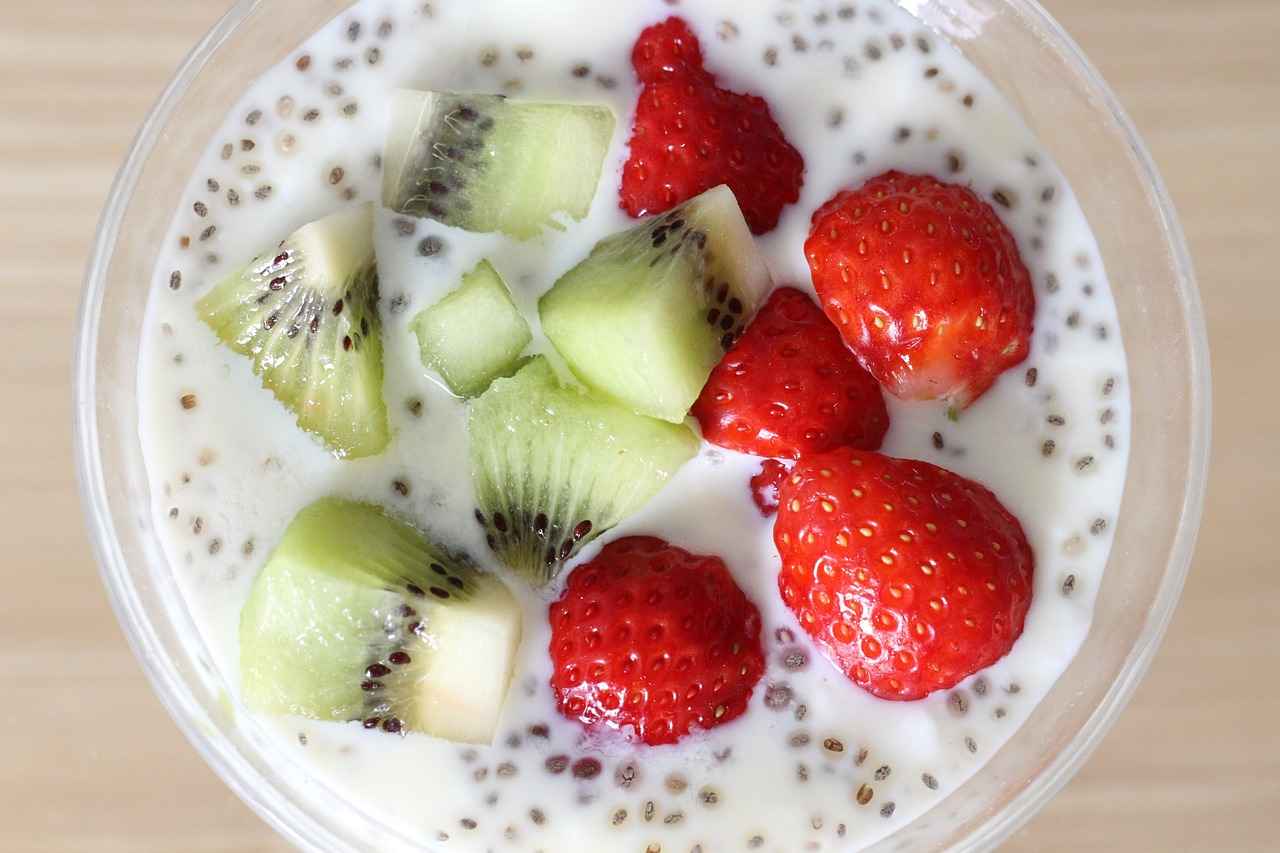
How to Incorporate Chia Seeds into Your Diet?
Chia seeds are a fantastic addition to any diet, known for their nutritional benefits and versatility. These tiny seeds can be easily incorporated into a variety of dishes, making them a popular choice for health enthusiasts. Below are several creative and delicious ways to add chia seeds to your meals.
One of the simplest ways to enjoy chia seeds is by adding them to your smoothies. Just mix a tablespoon or two into your favorite smoothie blend. Not only do they provide a rich source of omega-3 fatty acids, but they also enhance the texture, giving your smoothie a delightful thickness.
Chia pudding is a popular dish that is both easy to make and highly nutritious. Combine chia seeds with your choice of milk (dairy or plant-based) and let it sit in the refrigerator overnight. In the morning, you can top it with fresh fruits, nuts, or a drizzle of honey for added flavor.
In baking, chia seeds can be used to enhance the nutritional profile of your favorite recipes. Add them to muffins, breads, or pancakes to increase the fiber and protein content. Additionally, you can use chia seeds as a substitute for eggs by mixing one tablespoon of chia seeds with three tablespoons of water, letting it sit until it forms a gel-like consistency.
Sprinkle chia seeds over your salads for an extra crunch and a boost of nutrients. They pair well with leafy greens, vegetables, and even fruits, making your salads not only more satisfying but also more nutritious.
Chia seeds can be a great addition to homemade energy bars. Combine oats, nut butter, honey, and chia seeds to create a snack that is both energizing and filling. These bars are perfect for a quick breakfast or a post-workout snack.
Add chia seeds to soups and stews to thicken the consistency while boosting the nutritional value. They absorb liquid and expand, making your meals more satisfying without adding many calories.
Mix chia seeds into your breakfast cereals or oatmeal for a supercharged start to your day. They not only add a nutty flavor but also increase the overall nutritional value of your meal.
Chia seeds can be added to beverages, such as juices or flavored waters. When soaked, they create a gel-like texture that can make your drinks more interesting and filling.
Incorporating chia seeds into your diet is not just easy; it is also an enjoyable way to enhance your meals with health benefits. Whether you prefer them in smoothies, baked goods, or salads, these tiny seeds can make a significant impact on your overall nutrition. Start experimenting with chia seeds today and discover the delicious possibilities!
What Are Some Simple Chia Seed Recipes?
Chia seeds are not only a nutritional powerhouse but also an incredibly versatile ingredient that can elevate your meals. Whether you’re looking for a quick breakfast, a filling snack, or even a dessert, chia seeds can be incorporated into various recipes with ease. Here are some simple yet delicious ways to use chia seeds in your cooking.
One of the most popular ways to enjoy chia seeds is by making chia pudding. This dish is not only satisfying but also packed with nutrients. To make chia pudding, simply mix:
- 1/4 cup of chia seeds
- 1 cup of your choice of milk (almond, coconut, or dairy)
- 1-2 tablespoons of sweetener (honey, maple syrup, or agave)
- Your favorite toppings (fruits, nuts, or granola)
Allow the mixture to sit in the refrigerator for at least 2 hours or overnight. The chia seeds will absorb the liquid and create a creamy texture. Enjoy it as a breakfast or a healthy dessert!
Adding chia seeds to your smoothies is a fantastic way to enhance their nutritional value. Simply blend:
- 1 banana
- 1 cup of spinach or kale
- 1 cup of fruit (berries, mango, or pineapple)
- 1 tablespoon of chia seeds
- 1 cup of water or milk
This combination not only provides a delicious flavor but also a significant boost of fiber and protein. The chia seeds will help keep you full longer, making this a perfect meal replacement or post-workout snack.
If you’re looking for a quick energy boost, consider making homemade chia energy bars. Combine:
- 1 cup of oats
- 1/2 cup of nut butter
- 1/4 cup of honey or maple syrup
- 1/4 cup of chia seeds
- 1/2 cup of your choice of dried fruits or nuts
Mix all the ingredients and press them into a lined baking dish. Refrigerate for a few hours before cutting them into bars. These energy bars are perfect for on-the-go snacking and can easily be customized to suit your taste.
Making chia seed jam is another simple recipe that allows you to enjoy the benefits of chia seeds. Combine:
- 2 cups of fresh or frozen fruit
- 2 tablespoons of chia seeds
- 1-2 tablespoons of sweetener (optional)
Cook the fruit over medium heat until it breaks down, then stir in the chia seeds. Allow the mixture to cool, and it will thicken into a jam-like consistency. Spread it on toast or use it as a topping for yogurt.
For a nutritious twist on traditional pancakes, try adding chia seeds to your batter. Mix:
- 1 cup of flour
- 1 tablespoon of baking powder
- 1 tablespoon of chia seeds
- 1 cup of milk
- 1 egg (or chia egg for a vegan option)
Cook the pancakes on a skillet until golden brown. These pancakes are fluffy, delicious, and packed with protein!
Incorporating chia seeds into your diet is not only easy but also highly beneficial for your health. From puddings to energy bars, the possibilities are endless. Experiment with these recipes and discover your favorite ways to enjoy this superfood!
Can You Use Chia Seeds as an Egg Substitute?
Chia seeds have become a popular choice for those seeking plant-based alternatives in their cooking and baking. One of their most remarkable uses is as a vegan egg substitute. This is particularly beneficial for those following a vegan diet or for anyone with egg allergies. By mixing chia seeds with water, you can create a gel-like substance that effectively mimics the binding properties of eggs.
Creating a chia seed egg substitute is simple and requires just two ingredients: chia seeds and water. Here’s how to do it:
- Measure out 1 tablespoon of chia seeds.
- Add 2.5 tablespoons of water to the seeds.
- Mix well and let the mixture sit for about 5 to 10 minutes.
- Once it has thickened to a gel-like consistency, it is ready to use in your recipes.
Chia seeds offer several advantages when used as an egg substitute:
- Vegan-Friendly: They are an excellent option for vegans or those avoiding animal products.
- High in Nutrients: Chia seeds are packed with omega-3 fatty acids, fiber, and protein, enhancing the nutritional profile of your baked goods.
- Allergen-Free: They provide a safe alternative for individuals with egg allergies.
Chia seed eggs can be used in a variety of recipes, making them a versatile ingredient in your kitchen. Here are some popular uses:
- Baked Goods: Use chia seed eggs in muffins, pancakes, and cookies for added moisture and binding.
- Energy Bars: Incorporate them into homemade energy bars for a nutritious boost.
- Veggie Burgers: They help hold together ingredients in veggie patties, ensuring a great texture.
While there are various egg substitutes available, such as flaxseed meal and commercial egg replacers, chia seeds stand out due to their unique nutritional benefits. Flaxseed also creates a gel-like consistency, but chia seeds have a higher content of omega-3 fatty acids and fiber. Additionally, chia seeds have a more neutral flavor, making them suitable for a wider range of recipes.
While chia seeds are generally safe and nutritious, there are a few considerations:
- Some individuals may experience digestive discomfort if they consume chia seeds in large quantities.
- They may not work as well in recipes requiring a fluffy texture, such as soufflés or meringues.
Using chia seeds as an egg substitute is a fantastic way to enhance your baking while adhering to a vegan lifestyle or accommodating dietary restrictions. With their impressive nutrient profile and versatility, chia seeds not only serve as a binding agent but also contribute additional health benefits to your meals. As you explore the world of plant-based cooking, consider incorporating chia seeds into your recipes for a nutritious and delicious twist.

Are There Any Risks Associated with Chia Seeds?
Chia seeds have become a staple in many health-conscious diets due to their impressive nutritional profile and versatility. However, like any food, they come with certain considerations. In this section, we will delve into the potential risks associated with chia seeds, particularly focusing on their impact on digestive health.
While chia seeds are generally regarded as safe for most individuals, it’s important to recognize that they can lead to some digestive issues in certain people, especially when consumed in large quantities. The high fiber content in chia seeds can be both a benefit and a drawback. For those who are not used to a high-fiber diet, suddenly incorporating chia seeds can result in discomfort such as bloating, gas, or even constipation.
To mitigate these potential issues, it is advisable to start with small amounts of chia seeds. Gradually increasing your intake allows your digestive system to adjust to the added fiber. For most people, a serving size of 1 to 2 tablespoons per day is sufficient to reap the health benefits without overwhelming the digestive system.
Another important factor to consider is hydration. Chia seeds can absorb up to 12 times their weight in water. If consumed dry or without adequate fluids, they may expand in the digestive tract, potentially leading to blockages or discomfort. Therefore, it’s crucial to drink plenty of water when incorporating chia seeds into your diet.
For individuals with specific gastrointestinal conditions, such as irritable bowel syndrome (IBS) or diverticulitis, chia seeds may exacerbate symptoms. Consulting with a healthcare provider before adding chia seeds to your diet is recommended for those with pre-existing digestive concerns.
To enjoy the benefits of chia seeds while minimizing risks, consider the following tips:
- Start Small: Begin with a teaspoon of chia seeds and gradually increase to a tablespoon or two as your body adjusts.
- Hydrate: Always soak chia seeds in water or another liquid before consuming them to prevent them from absorbing moisture in your digestive tract.
- Mix with Other Foods: Incorporate chia seeds into smoothies, yogurts, or oatmeal to enhance digestion.
- Monitor Your Body: Pay attention to how your body reacts after consuming chia seeds. If you experience discomfort, consider reducing your intake or consulting a healthcare professional.
In conclusion, while chia seeds are a nutritious addition to many diets, it’s essential to be mindful of their potential digestive effects. By starting with small amounts and ensuring proper hydration, you can enjoy the benefits of these tiny seeds without the discomfort.

How to Choose the Right Chia Seeds?
When it comes to incorporating chia seeds into your diet, choosing the right seeds is crucial for maximizing their health benefits. Chia seeds, known for their rich nutrient profile, can vary in quality based on several factors. Here’s a comprehensive guide on how to select the best chia seeds for your needs.
- Organic Certification: Opt for chia seeds that are organically certified. This ensures that the seeds are grown without harmful pesticides or chemicals, providing a cleaner, healthier option.
- Color: High-quality chia seeds typically have a rich, deep color. Look for seeds that are either black or white, as these colors indicate freshness and quality. Avoid seeds that appear dull or have an off-color.
- Freshness: Always check the packaging for a freshness date. Chia seeds can lose their nutritional value over time, so it’s important to choose seeds that have been packaged recently. Ideally, look for seeds that have a long shelf life ahead.
- Source: Research the brand and its sourcing practices. Reputable brands often provide details about where their seeds are sourced from, ensuring quality and sustainability.
Choosing high-quality chia seeds not only enhances the flavor of your dishes but also maximizes their nutritional benefits. Poor quality seeds may lack essential nutrients and could even contain contaminants. By selecting seeds that meet the criteria above, you ensure that you are getting the most out of this nutrient-dense superfood.
Once you have selected your chia seeds, proper storage is essential to maintain their freshness:
- Keep them in a cool, dry place: Store chia seeds in an airtight container away from direct sunlight and moisture.
- Refrigeration: For extended shelf life, consider refrigerating chia seeds. This can help preserve their nutrients and flavor.
High-quality chia seeds can be incorporated into a variety of dishes:
- Chia Pudding: Soak chia seeds in milk or a milk alternative to create a nutritious pudding.
- Smoothies: Add chia seeds to smoothies for a protein boost and added texture.
- Baked Goods: Use chia seeds in muffins, breads, and energy bars to enhance nutritional value.
In summary, when selecting chia seeds, consider factors such as organic certification, color, and freshness. By prioritizing these aspects, you can ensure that you are choosing high-quality seeds that will provide maximum nutritional benefits and flavor in your dishes. Remember, investing in quality chia seeds is an investment in your health!
Frequently Asked Questions
- What are the nutritional benefits of chia seeds?
Chia seeds are packed with nutrients! They are an excellent source of protein, omega-3 fatty acids, and fiber. Just two tablespoons contain about 4 grams of protein, making them a fantastic addition to any diet.
- How can I use chia seeds in my meals?
You can sprinkle chia seeds on salads, blend them into smoothies, or make delicious chia pudding! Their versatility means you can easily add them to almost any dish.
- Are there any side effects of consuming chia seeds?
While chia seeds are generally safe, eating too many can lead to digestive issues for some people. It’s best to start with a small amount and gradually increase your intake.
- Can chia seeds help with weight loss?
Absolutely! Chia seeds can help you feel fuller for longer due to their ability to absorb water and expand in your stomach, which may help reduce overall caloric intake.
- How do I choose the best chia seeds?
Look for organic and fresh chia seeds. The color can vary, but high-quality seeds should be dark and shiny. Always check for freshness to ensure maximum flavor and nutrition.
